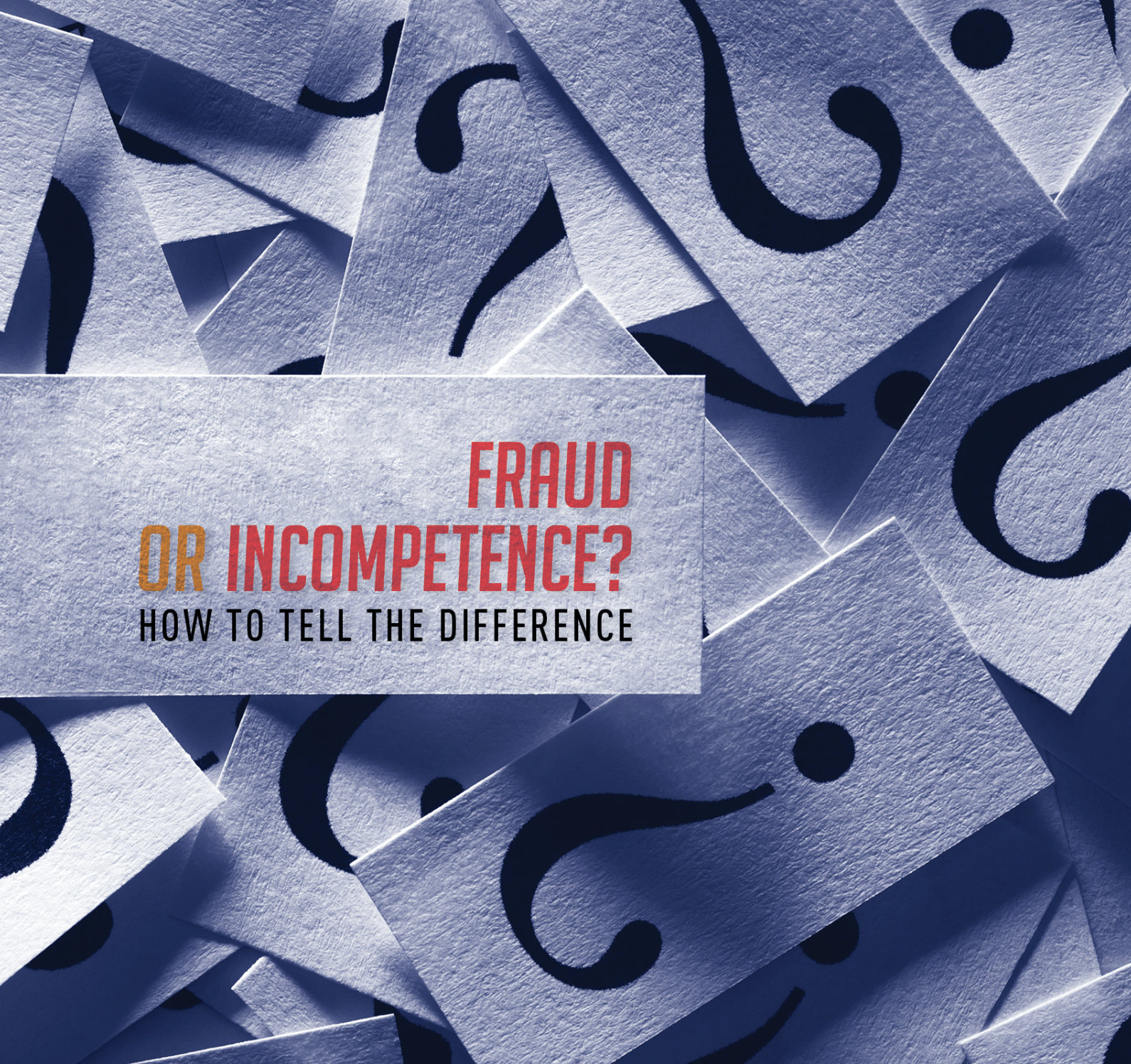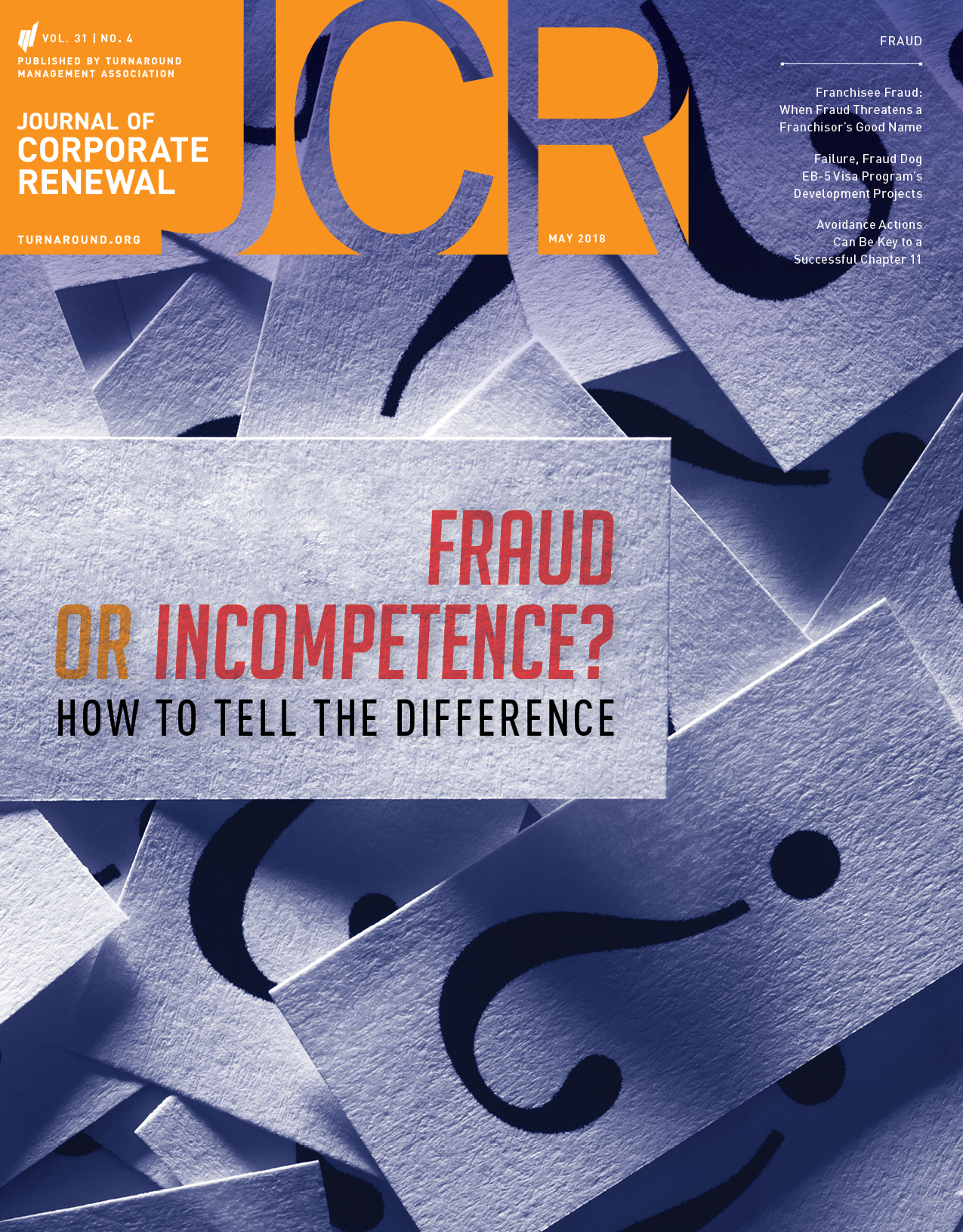May 2018
More from this Issue
-
Staying Ahead of the Curve
As professionals in the turnaround industry, we are consistently called upon to address liquidity issues and deteriorating financial and operational performance. One of the first steps we take is to diagnose the root cause of the distress. Once we identify the cause, we are better equipped to develop strategies to stem the losses and implement […] -
Newcomers: May 2018
Arizona Andrea Wimmer, Schian Walker PLC Atlanta Andrew Blaesing, Aurora Management Partners Inc. Lloyd R. Lane, Moore Colson Amanda Levesque, Moore Colson Susan H. Seabury, Baker Tilly John A. Thomson Jr., Adams & Reese LLP Phil Tucker, Phil Tucker & Associates LLC Cora A. Wilke, Morris Manning & Martin LLP California – Northern Ryan Pinkston, Seyfarth Shaw […] -

Brian Davies: Rock Solid
Brian Davies is a managing director and practice head of Capstone Headwaters’ Financial Advisory Services (FAS). He is responsible for the firm’s corporate restructuring, transaction advisory, and specialty M&A operations, as well as managing client engagements. With 20 years of experience in transaction advisory, business reorganization, and interim management services, Davies has provided financial advisory […] -

Courts’ Decisions Vary on Extraterritoriality of U.S. Bankruptcy Law in Avoidance Actions
“It is a longstanding principle of American law ‘that legislation of Congress, unless a contrary intent appears, is meant to apply only within the territorial jurisdiction of the United States.’”1 A number of cases involving avoidance actions have been brought against overseas defendants in recent years. Several legal doctrines apply in such circumstances, including the […] -

Avoidance Actions Can Be Key to a Successful Chapter 11
In a typical Chapter 11 bankruptcy case, the initial terms of a debtor-in-possession (DIP) financing arrangement likely include a provision granting the DIP lender a lien on the bankruptcy avoidance actions and/or the proceeds of such actions, and one of the first things a committee of unsecured creditors does upon its appointment by the U.S. […] -

Failure, Fraud Dog EB-5 Visa Program’s Development Projects
The employment-based fifth preference category (EB-5) visa program was initially created by the Immigration Act of 1990 for the express purpose of creating new jobs for U.S. workers and boosting the U.S. economy via an influx of new foreign capital. The program provides a method by which wealthy immigrant investors can achieve lawful U.S. permanent resident status […] -

Franchisee Fraud: When Fraud Threatens a Franchisor’s Good Name
The typical response of a victim of fraud is to wage a full-scale attack on the perpetrator—report them to the authorities and seek to recover the maximum amount of damages without regard to the harm inflicted on the bad actor. However, this standard playbook would be counterproductive when a fraud is perpetrated by a franchisee […] -

Fraud or Incompetence? How to Tell the Difference
Misstatements and omissions of significant information could be the result of either fraud or incompetence. Unfortunately, it is often difficult to tell the difference. Incompetence is ineptitude and lack of ability, while fraud is intentional deception for financial or personal gain. Knowing which has occurred is important because there are paths toward recovering what was […] -
Fraud Remains a Growing Concern Globally
Six out of every 10 businesses are experiencing the same or higher levels of losses to online fraud compared with a year ago, according to “The 2018 Global Fraud and Identity Report” from Experian. Fraud was cited as a growing concern by 72 percent of businesses that participated in the study. Bankrupt companies are also three times […]
